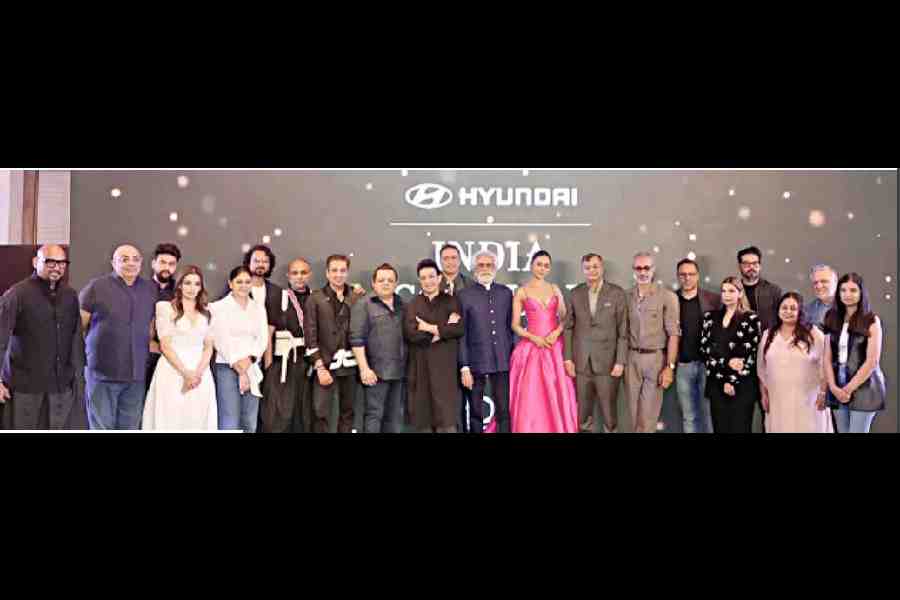Fashion Design Council of India (FDCI) announced India Couture Week 2023, presented by Hyundai India, in Delhi on Monday. Ahead of the fashion extravaganza that commences on July 25, in Delhi, Sunil Sethi, chairman of FDCI, chatted with t2 on how the ICW has grown over the years and why the future of couture is bright.
What can we expect from the ICW 2023, presented by Hyundai India, this time?
This is the 16th edition and we have 16 shows and 17 designers. We are bigger and better this time. We start on July 25 with an inaugural show followed by the opening show the next day. We'll have two shows every day from then. And, we end on August 2. Technically, there is no finale. We usually call it 'opening show' and 'closing show'.The designers who are showcasing are Anamika Khanna, Dolly J, Falguni Shane Peacock, Gaurav Gupta, JJ Valaya, Kunal Rawal, Rajesh Pratap Singh, Ritu Kumar, Rahul Mishra, Rohit Gandhi and Rahul Khanna, Rimzim Dadu, Shantnu & Nikhil, Suneet Varma, Samant Chauhan and Rose Room, Tarun Tahiliani, and Varun Bahl. This is the first time we have Rajesh Pratap and Rimzim doing a couture show. Samant Chauhan and Rose Room will do a joint show.The venue will be Taj Palace, Delhi, and there will be a few offsite shows too.
How has Couture Week evolved and grown?
We would always start on a Wednesday and finish on a Sunday and try to manage with 10-12 shows. The response, however, has been so terrific, we don't want to have three shows in a day. Everybody keeps telling me that Paris couture week starts with shows at 11am and then there are shows happening throughout the day in different parts of the city. Even though in terms of creativity, Indian fashion designers have evolved to such a state that many of them are taking part internationally, I don't think we have evolved so much that people will go see a show at 11 in the morning and continue to watch five shows. Also, not many shows will have elaborate sets. FDCI also likes to relieve the designers of other logistical problems. We only want them to bring to the table creativity in terms of the clothes and sets they would like to build.
Prior to 2008, 'couture' and 'bridal wear' wasn't really the flavour of the season. People wouldn't be proud to say we are making bridals. Now, all the pret designers also want to have a bridal and a couture line. Also, the number of red-carpet events was few and far between. Now, there are so many red-carpet events within the country. In that, we were right in calling it couture and not just bridal.
The concentration for many designers is the bride-to-be, but there are other family members to cater to, too. So, you cannot just have the heavy-set lehnga. Plus, there are many functions which need lighter clothes. So, some people excel in that. We have people who have made things that don't abide by the rule at all. And with the red-carpet events going up, gowns have become popular and some of the designers will only focus on that. FDCI should be given credit here that where everybody thinks we are lagging behind, you need to know that we started in 2008, the year I took over as the FDCI chairman. This was something new we started and were ahead of the times and we are still here. Besides Paris couture week and maybe New York, I don't think there are any other couture weeks. Our participation is among the best that the country has to offer. The person who buys bridal or couture today is an evolved individual and knows exactly what they want. They want to customise and the good thing is that the Indian fashion designer today is no longer a cottage industry. I give this credit to the Indian couturiers who have upped their ante. They are just not catering to a bride in red. I am more than happy to see designers who will experiment.
You are also planning a bridal exposition...
We will be doing FDCI's first wedding weekend, right after Couture Week. It will be by invitation only. All the Couture Week designers and more will take part. There will be about 30 stalls.
Where do you see the business of couture going in the coming years?
Higher and higher. There is no stopping this now. When we started we were sceptical in the first few years about whether there is business happening. People now come to us only because there is business happening.

Sunil Sethi, chairman, FDCI
